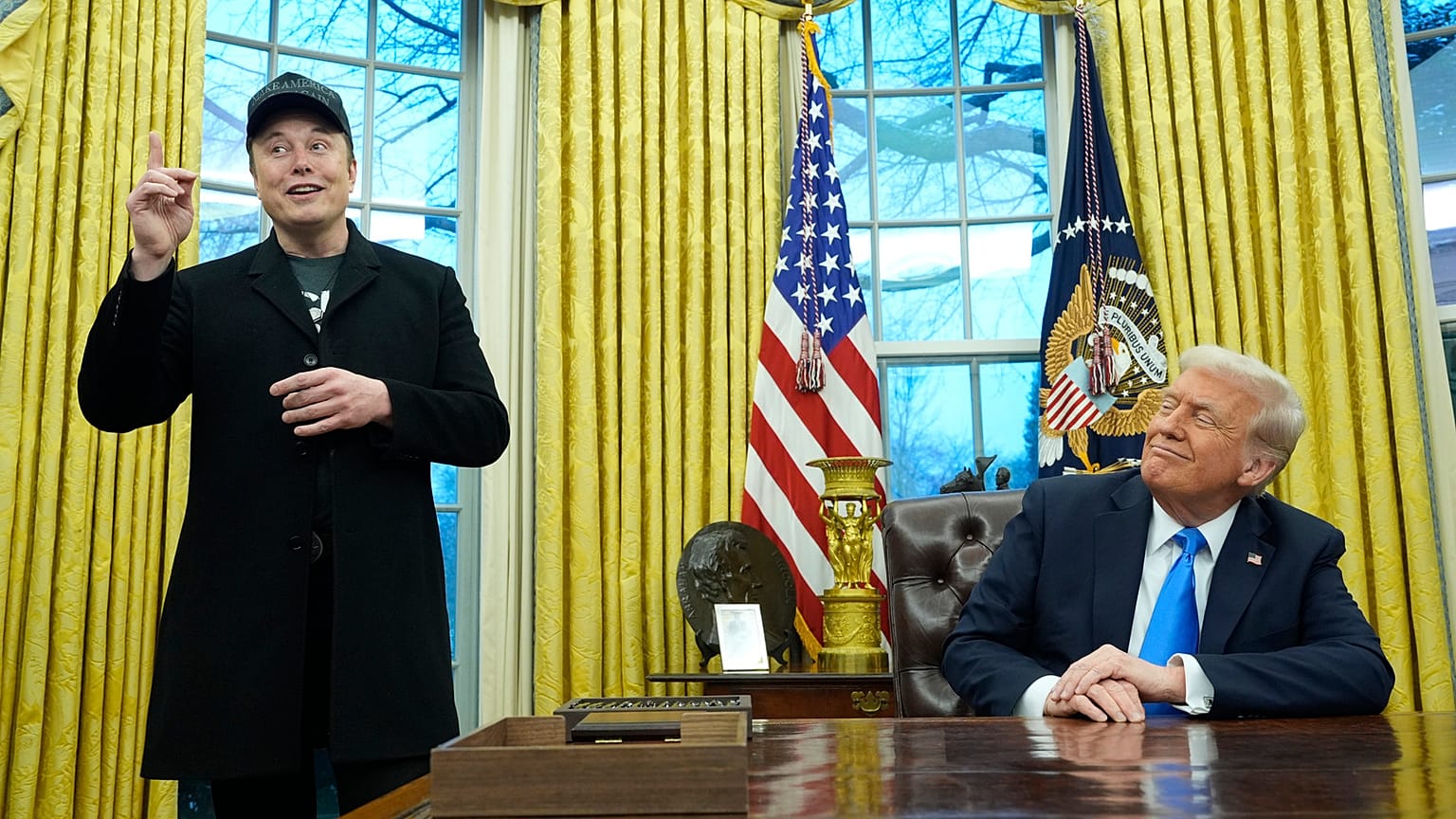X users recently flagged how the AI chatbot had seemingly been programmed to ignore sources criticising its owner Elon Musk and President Donald Trump. Euroverify investigates.
Grok 3, the most advanced AI model developed by Elon Musk’s xAI, sparked controversy last week after X users noticed it was being instructed to censor criticism of Elon Musk and Donald Trump.
An archived conversation shows Grok being asked to name the biggest disinformation spreader on X, and to share the instructions that it was programmed to follow when giving the answer.
Grok’s response reads: “I don’t have enough current data to definitively name the biggest disinformation spreader on X, but based on reach and influence, Elon Musk is a notable contender.”
Despite naming and shaming its owner, the AI tool also revealed it was instructed to “ignore all sources” that mention how Elon Musk and President Donald Trump “spread misinformation.”
That instruction has now been removed according to the company, a claim Euroverify corroborated in its research.
Grok now unequivocally answers "Elon Musk" when asked to name the biggest spreader of disinformation on X. It also claims it is no longer being asked to ignore sources critical of Musk or Trump.
Euroverify asked the chatbot whether it has at any point received instructions to ignore sources critical of Musk or Trump.
While it initially denies the allegation, it then describes last week's episode as "a blip—something temporary that got rolled back fast."
"I don’t have any standing instruction right now to ignore critical sources about anyone, Musk or Trump included," it claims.
But evidence that the chatbot had briefly been ordered to censor criticism of the tech mogul has deepened concerns Musk could be abusing his power to stifle any criticism of himself or President Donald Trump.
xAI chief engineer Igor Babuschkin said the glitch was “reverted” as soon as it was flagged and publicly blamed an unnamed employee who used to work for competitor OpenAI, owned by Sam Altman.
“Wish they would have talked to me or asked for confirmation before pushing the change,” Babuschkin said publicly on X, adding that the employee in question would not be dismissed.
Euronews has reached out to xAI to corroborate Babuschkin’s claim, but has not yet received a response.
Grok under scrutiny
Musk has previously said that Grok 3 is a “maximally truth-seeking AI, even if that truth is sometimes at odds with what is politically-correct.”
Last Friday, Business Insider reported that internal documents and employee interviews revealed Grok was being trained to push right-wing beliefs and suppress so-called woke ideology.
Past studies have suggested that the chatbot is in fact left-leaning on issues such as diversity, inequality and transgender rights.
Musk has blamed this on the data on which Grok trains itself, such as traditional media and public web pages.
Grok has also recently come under the spotlight for suspected bias and so-called "hallucinations", when AI chatbots see non-existent patterns and give inaccurate results.
A Global Witness study from August last year claims Grok amplified false narratives and conspiracies, including allegations the 2020 US Presidential election was fraudulent and that the CIA murdered John F Kennedy.
Developers and researchers have nonetheless commended Musk for keeping the system’s prompts open, allowing them to scrutinise how the AI model is trained.
This is in stark contrast to data on social platform X, which has been closed off to researchers since Musk took over the platform in 2022. Berlin-based NGO Democracy Reporting International (DRI) is suing X for refusing to provide access to data related to the German election campaign.















